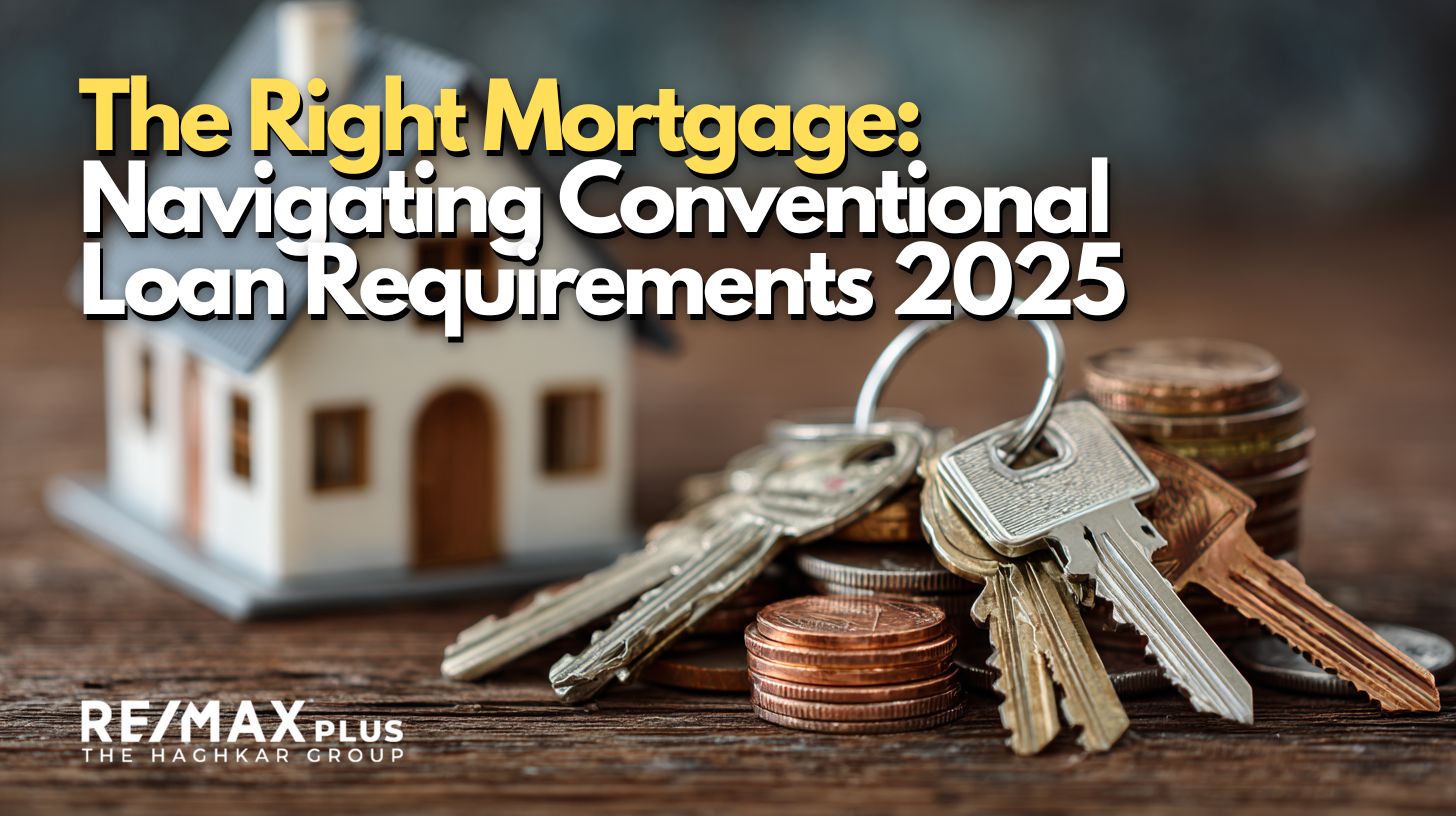
09 Sep The Right Mortgage: Navigating Conventional Loan Requirements 2025
The Right Mortgage: Navigating Conventional Loan Requirements 2025
Choosing the right mortgage can shape your financial future and homeownership experience. It’s crucial to understand various mortgage options to make informed choices, especially in light of the changing conventional loan requirements 2025. This guide explores these conventional loan specifications and other mortgage options to help you decide wisely.
Understanding Different Mortgage Types
When embarking on a homeownership journey, you’ll encounter several mortgage options. These include conventional loans, FHA loans, VA loans, USDA Rural Development loans, and jumbo loans, each catering to different borrower needs and profiles. Understanding these mortgage types is essential in selecting the right fit for your financial and property goals. For insights into home buying strategies, check out Home Buying 101 for first-time buyers.
Conventional Loans
Conventional loans are mortgages not insured by the federal government. Instead, they follow the requirements set by Fannie Mae and Freddie Mac. These loans often provide competitive interest rates, but qualifying can be more demanding compared to government-backed loans. They are typically suited for borrowers with stronger credit histories and a more substantial down payment. Learn more about conventional loans: Bankrate and CrossCountry Mortgage.
Conventional Loan Requirements 2025
Getting a conventional loan involves meeting specific criteria, particularly highlighted by the conventional loan requirements 2025. Here are key considerations:
- Credit Score: A minimum credit score of 620 is necessary to qualify for most lenders. However, a score of 740 or higher can secure the best rates. This reflects a notable change in the requirements for 2025, stressing creditworthiness. For more information, visit The Mortgage Reports and NerdWallet.
- Down Payment: The standard down payment is at least 3% for fixed-rate loans and 5% for adjustable-rate loans. A 20% down payment helps avoid private mortgage insurance (PMI), which can add to your monthly costs. Discover more at Bankrate and CrossCountry Mortgage.
- Debt-to-Income Ratio (DTI): The standard maximum DTI is 43%, but loans may allow up to 45% or 50% with strong compensating factors. Understanding this ratio is essential as it reflects your ability to handle monthly obligations. Check out Bankrate and The Mortgage Reports.
- Loan Limits: For a one-unit property, the national conforming loan limit is $806,500, but high-cost areas can reach up to $1,209,750. Staying informed about these limits ensures you can meet your purchasing goals. Learn more via Bankrate and LendingTree.
- PMI: For down payments under 20%, PMI is necessary and is an ongoing expense until the loan-to-value drops below 80%. This is a significant factor when considering future financial commitments. Explore more at Bankrate.
FHA Loans
Federal Housing Administration (FHA) loans are popular among buyers with lower credit scores or smaller down payments. These government-backed loans provide an accessible route to homeownership, especially for first-time buyers. FHA loans offer more lenient credit score requirements, making them a viable option for those who may not qualify for conventional loans. For more insights, read What to Know Before Selling Your Home in 2025.
FHA Loan Limits Pennsylvania (2025)
FHA loan limits in Pennsylvania for 2025 adhere to federal guidelines but differ by county based on local real estate conditions. Some counties may offer higher thresholds, essential for buyers targeting pricier homes. Comparing these limits with the national standard helps in strategizing your home purchase plans.
VA Loans
VA loans are supported by the U.S. Department of Veterans Affairs, available for veterans, service members, and some surviving spouses. They provide numerous benefits, including no down payment and no private mortgage insurance (PMI), alongside competitive interest rates. Eligibility hinges on service history and status, offering a tailored avenue for those who have served.
VA Loan Benefits
- No Down Payment: Eases the upfront financial burden for buyers.
- No PMI: Removes additional monthly costs associated with conventional loans.
- Competitive Interest Rates: Ensures affordable loan terms for eligible applicants.
USDA Rural Development Loans
USDA Rural Development loans are tailored for low- and moderate-income families purchasing homes in qualified rural areas. These loans offer specific benefits and reduced costs, enabling homeownership for those who might not afford it otherwise.
USDA Rural Development Loan Eligibility
USDA loans require meeting geographic and income criteria, with incomes not exceeding 115% of the area median. Properties must be primary residences and adhere to condition standards. Applying involves confirming eligibility through USDA-approved lenders. This process ensures suitable candidates can access these favorable mortgage terms.
Jumbo Loans
Jumbo loans are necessary for financing properties exceeding conventional loan limits, often above $806,500 in 2025. These loans allow purchasing high-value homes but demand stricter credit scores and larger down payments to offset the increased risks for lenders. For more details, visit Bankrate and LendingTree.
Renovation Loan Options
For those interested in purchasing and renovating a home, several mortgage options are available:
- FHA 203(k) Loans: Combine purchase and renovation costs, ideal for borrowers with less-than-perfect credit.
- Fannie Mae HomeStyle Renovation Loans: Similar to 203(k) loans but for conventional borrowers looking to finance home improvements.
- Conventional Renovation Loans: Standard qualifying criteria with the flexibility to finance approved renovations.
These options vary in flexibility, credit score requisites, property types, and allowed renovations, equipping you with avenues based on your renovation objectives.
Comparing Mortgage Options
Considering the pros and cons of each loan type is crucial for choosing the right mortgage:
- Conventional Loans: Offer low costs for strong credit holders but have strict qualification requirements.
- FHA Loans: Easier qualifications with mortgage insurance, ideal for lower credit scores.
- VA Loans: Excellent benefits for qualified veterans with no down payment requirements.
- USDA Loans: Zero down payment options limited by geography and income.
- Jumbo Loans: Necessary for pricey homes, with demanding credit and down payment conditions.
To decide effectively, consider your financial standing, long-term housing plans, property type, location, and eligibility for particular programs.
Choosing the right mortgage greatly impacts your financial well-being and homeownership journey. Evaluating individual needs and possibilities is essential to optimizing your mortgage choice. Always seek advice from qualified mortgage advisors to tailor mortgage solutions to your specific situation.
Still Need Help with Figuring out what the Right Mortgage is for You?
For homebuyers embarking on this important journey, determining the appropriate mortgage option is a fundamental step. It ensures that your homebuying experience aligns with your financial objectives and lifestyle. If you’re ready for expert consultation, connect with a trusted real estate professional, like those at RE/MAX Plus, to explore options that suit your needs perfectly.

